21st Orphan Drugs and Rare Diseases Global Congress 2024 Europe
Innovative programmes to optimize access in a global healthcare market
Holiday Inn London - Bloomsbury, an IHG Hotel, London, United Kingdom
11th - 12th April 2024
Facilitate Live is proud to present our Orphan Drugs and Rare Diseases Global Congress 2024 Europe. It’s the 21st in the series of our Flagship tri-annual Orphan Drugs & Rare Diseases event. This congress will provide you with a comprehensive overview of the critical issues shaping the future of Orphan Drugs.
The COVID-19 Pandemic has impacted the lives of just about everyone, patients receiving continuous treatment and care included. The Rare Disease community is already experiencing considerable challenges in achieving early and detailed diagnosis and having access to care and life-saving treatment, to chronic, highly complex, progressive, and severely disabling nature of their diseases, which generate specific care needs. Undoubtedly, during this crisis, the rare diseases community is experiencing unprecedented overall disruption even more…
According to a report by Fortune Business Insights, the Global Orphan Drugs Market size will emerge from the COVID-19 crisis at a moderate growth during the forecast period of 2020 to 2026. The global orphan drugs market size is projected to reach USD 340.84 billion by the end of 2027. As stated, the market was worth USD 151.00 billion in 2019 and will exhibit a CAGR of 10.5% during the forecast period, 2020-2027.
The current regulatory climate increasing the number of regulatory approvals, expanding numbers of successful clinical trials related to these drugs, tremendous investments in R & D, and the interest and existence of several large-scale manufacturers, will create opportunities and contribute exponentially to the overall market growth.
The two-day Congress will provide an interactive, cutting edge, and comprehensive discussion and networking format led by key experts with intimate knowledge in the industry. Gain practical strategies and best practices on challenges, innovations, technologies, and concepts surrounding orphan drugs and rare diseases.
We look forward to meeting you at the Congress!
Sincerely yours,
Jocelyn Raguindin
Conference Director
Facilitate Live
- Day 1 11/04/2024
- Day 2 12/04/2024
- Auditorium 1
 Dr. Femida Gwadry-Sridhar, Founder and CEO Pulse infoframe Inc.
Dr. Femida Gwadry-Sridhar, Founder and CEO Pulse infoframe Inc.
MACRO OUTLOOK AND CURRENT TRENDS
- Scene setting on rare disease – definitions and unmet need
- Progress in last decades – melting the iceberg of need?
- Introducing the Health Equity agenda in life sciences
- Evolution of Health Equity space – patient representation, expert patients, patient organisations, engagement platforms, differentiation, and articulation within the protected characteristic space
- Health Equity and Rare Disease – aspects of a Ven diagram?
- Thought/discussion points for conference.
 Dr Usman Khan, Chair, Motor Neurone Disease (MND) Association
Dr Usman Khan, Chair, Motor Neurone Disease (MND) Association
- The total burden of rare disease, which affects not only patients, but their caregivers, family members, and society as a whole.
- Addressing major logistical and regulatory issues due to minimal clinical research centers and sufficient expertise.
- Special consideration and flexibility to ensure that vulnerable patients with rare diseases have a sustained pathway to access
- What challenges still remain to increased equity for people living with a rare disease and their families?
Moderator:
 Dr. Femida Gwadry-Sridhar, Founder and CEO, Pulse infoframe Inc.
Dr. Femida Gwadry-Sridhar, Founder and CEO, Pulse infoframe Inc.
Panelists:
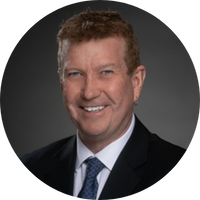 David Pearce, President, Innovation & Research, Sanford Health
David Pearce, President, Innovation & Research, Sanford Health
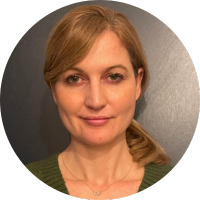 Melanie Dixon, Trustee, Cure DHDDS
Melanie Dixon, Trustee, Cure DHDDS Carole Scrafton, Director & Co-Founder, Flutters and Strutters
Carole Scrafton, Director & Co-Founder, Flutters and Strutters
 Dr Usman Khan, Chair, Motor Neurone Disease (MND) Association
Dr Usman Khan, Chair, Motor Neurone Disease (MND) Association
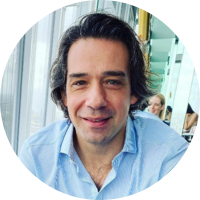 Dan Lewi, Head of Business Development and Patient Advocacy , Pulse infoframe Inc.
Dan Lewi, Head of Business Development and Patient Advocacy , Pulse infoframe Inc.
- Beyond Data and Strategic HTA Submission Tactics
- Harnessing Community Insights for Better Launch Planning
- Developing Sustainable Go-to-Market Approaches for Orphan Medicines
- Building an Ecosystem of Collaboration to Drive Health-System Change
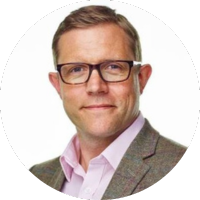 Owen Marks, Head of Rare Diseases and Diversity and Inclusion Co-Chair, Pfizer
Owen Marks, Head of Rare Diseases and Diversity and Inclusion Co-Chair, Pfizer
- The European Parliament is currently reviewing the Pharmaceutical Package, which will potentially be voted on in April – this new text will outline the incentive and regulatory ecosystem for OMP developers. This will be a major milestone in the legislative review.
- The outcomes of these discussions will shape the landscape for OMP developers in the EU for the next 20 years.
- Reflect on the changes taking place outside the scope of the legislative framework, including the role of PPP and ERNs
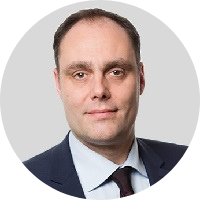 Alexander Natz, Secretary General, EUCOPE
Alexander Natz, Secretary General, EUCOPE
- Understanding the necessity of partnering with the patient community from the start
- Elevating the patient voice – the UCB experience in gMG
- The role of real-life experience in changing the treatment paradigm
- Innovation approaches in evaluating new medicines for rare diseases
- The importance of building rare capabilities within a company to support launch
 Manuela Maronati, Head of Europe, Rare Disease Organization, UCB
Manuela Maronati, Head of Europe, Rare Disease Organization, UCB
- This presentation will focus on the role of RWD in natural history and patient registries.
- How data can be utilized to help inform study design
- The use of RWD as an external control and to find eligible patients for trials
- Using RWD with prior clinical trial data to better understand patient outcomes.
 Dr. Femida Gwadry-Sridhar, Founder and CEO, Pulse infoframe Inc.
Dr. Femida Gwadry-Sridhar, Founder and CEO, Pulse infoframe Inc.

RESEARCH & DEVELOPMENT
- The role that patient networks can play in improving diagnosis, clinical trial recruitment and retention.
- The need to stop thinking of communities as being ‘hard to reach’ and appreciate that some services are ‘hard to access’.
- Overcoming barriers and striving for equity.
- Allowing ourselves to be vulnerable and reflecting on our own practices and organisational culture.
- Developing inclusive and accessible services and support.
- Including the voices of people who often go unheard – involving and engaging with people from diverse and marginalised communities.
- Learning from people with lived experience.
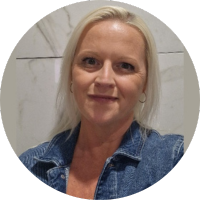 Kerry Leeson-Beevers, Chief Executive, Alström Syndrome UK
Kerry Leeson-Beevers, Chief Executive, Alström Syndrome UK
- How to collaborate with academic, industry, and patient advocate stakeholders
- Hot topics in rare diseases
- Future of therapeutic development for rare diseases
 David Pearce, President, Innovation, Research, & World Clinic Sanford Health
David Pearce, President, Innovation, Research, & World Clinic Sanford Health
- Determining accurate patient population estimates for rare diseases is critical at all stages of drug development, from R&D through to securing orphan drug status and commercialisation.
- Standard methods pose significant limitations due to the paucity of data, which presents risks to decision-making processes.
- The availability of genetic databases has enabled a new “bottom-up” approach to establishing accurate data on patient populations, and mitigating such risks.
- This presentation will discuss these new methods and how they are being applied.
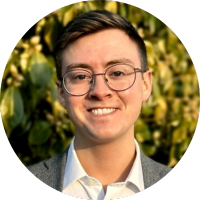 Joshua Card-Gowers, Senior Evidence Lead, HealthLumen
Joshua Card-Gowers, Senior Evidence Lead, HealthLumen
- Receiving a diagnosis – the start of our journey.
- Reaching out to the scientific community and searching for patients.
- Planning our strategy in how best to tackle this ultra rare disease.
- Problems encountered along the way.
- Our hopes for the future.
 Melanie Dixon, Trustee, Cure DHDDS
Melanie Dixon, Trustee, Cure DHDDS
The AKU Society successfully led the 10 year development programme of the drug nitisinone for the ultra rare genetic disease Alkaptonuria (AKU, or Black Bone Disease). But we are now learning that the disease is even more serious than originally thought and that limiting the drug’s side effects requires a strict low protein diet.
That’s why the AKU Society has launched its own drug discovery and development programme that it is funding at the University of Liverpool in order to develop new drugs that will resolve these issues. Find out at our talk what challenges face patient groups carrying out their own drug discovery programme and how to overcome these.
 Nick Sireau, PhD, Chair and CEO, AKU Society
Nick Sireau, PhD, Chair and CEO, AKU Society
- Overview of current methods for their prevention, diagnosis, and treatment.
- Strengths and limitation of current development pathways for new drugs, medical devices, and biologics for rare diseases
- Special challenges that rare diseases create for research and product regulation
- Current public policies relevant to product development for rare diseases
Moderator:
 David Pearce, President, Innovation & Research, Sanford Health
David Pearce, President, Innovation & Research, Sanford Health
Panelist: Anthony Hall, Chief Medical Officer, Healx
Anthony Hall, Chief Medical Officer, Healx
 Nick Sireau, PhD, Chair and CEO, AKU Society
Nick Sireau, PhD, Chair and CEO, AKU Society
 Dr. Harriet Holme, Chair and Founder, PCDResearch.org
Dr. Harriet Holme, Chair and Founder, PCDResearch.org
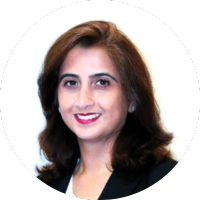 Surabhi Verma, Chief Medical Officer, Leadiant Biosciences
Surabhi Verma, Chief Medical Officer, Leadiant Biosciences
 Dr. Femida Gwadry-Sridhar, Founder and CEO, Pulse infoframe Inc.
Dr. Femida Gwadry-Sridhar, Founder and CEO, Pulse infoframe Inc.
- Auditorium 1
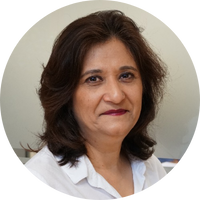 Sheela Upadhyaya – Life Sciences Consultant – specialising in Rare Disease
Sheela Upadhyaya – Life Sciences Consultant – specialising in Rare Disease
ACCESS & COLLABORATION
- How are public private partnerships advancing?
- How could they add value? the power of PPP
- How the futures PPP looks like? What is really exciting?
- Conclusion, look to the future
 Anne-Sophie Chalandon, Head of Global Public Affairs, Rare Diseases & CGT Policy, Specialty Care,
Anne-Sophie Chalandon, Head of Global Public Affairs, Rare Diseases & CGT Policy, Specialty Care,
Sanofi
 Sheela Upadhyaya – Life Sciences Consultant – specialising in Rare Disease
Sheela Upadhyaya – Life Sciences Consultant – specialising in Rare Disease
- The difference between real world data and real world evidence
- The utility of RWE within a drug development pathway
- RWE frameworks across the world
- Use of RWE in HTA
 Sheela Upadhyaya – Life Sciences Consultant – specialising in Rare Disease
Sheela Upadhyaya – Life Sciences Consultant – specialising in Rare Disease
- This session reports on the collective vision and efforts of global patient leaders towards
empowering and enabling the patient movement to ‘level’ and ‘leverage’ up towards delivering its
full potential for the benefit of patients, health systems, and society
 Amanda Bok, Chief Strategy Officer, The Synergist
Amanda Bok, Chief Strategy Officer, The Synergist
- Role of RWD/E in orphan disease drug development
- Pitfalls in the use of RWD/E in orphan drug development
- Repurposing and RWD/E
 Surabhi Verma, Chief Medical Officer, Leadiant Biosciences
Surabhi Verma, Chief Medical Officer, Leadiant Biosciences
- Establishing Trust and partnership
- Using 3rd party agencies as a networking, capacity and bridge building partners
- Building joint successful advocacy campaigns
- Exploring ethical issues and barriers in joint working
- What does best practice look like now and in the future.
 Nigel Nicholls, General Manager UK/Nordics & Baltics, Egetis Therapeutics AB
Nigel Nicholls, General Manager UK/Nordics & Baltics, Egetis Therapeutics AB
- Introduction of a novel methodology to tilt the cost-benefit function of rare disease treatment development
- Leveraging both human and machine intelligence to identify treatment opportunities and build collaborative teams around relevant assets
- Case study and preliminary outcomes from our Rare Neurology cohorts will be presented
 Dr. Ron Jortner, Founder/CEO, Aspire Biosciences
Dr. Ron Jortner, Founder/CEO, Aspire Biosciences
- Today’s Rare Disease Landscape
- Challenges & Opportunities
- The importance of patient networks and incorporating diverse patient voice in diagnosis and clinical trial recruitment
- Patients before Profits – How to improve the clinical trial experience for patients and retention for sponsors
- The Importance of Early Access
- Understanding end points and emerging science
- Collaboration, Collaboration, Collaboration !!!
 Bob Stevens, Group CEO, MPS Society
Bob Stevens, Group CEO, MPS Society
- Why is patient advocacy beneficial to research?
- Understanding of elements contributing to meaningful ways of involving patients in research
- Advantages of involving patients early in research
- What else needs to be done?
 Carole Scrafton, Director & Co-Founder, Flutters and Strutters
Carole Scrafton, Director & Co-Founder, Flutters and Strutters
- In rare disease, patients look ‘upstream’ with hope for development of new treatments and access to trials and ’downstream’ for better, faster diagnoses and access to treatments. No other disease category faces the same sorts of challenges all along the continuum. Recent market conditions have halted development of a number of promising potential therapies, and new policies, coverage decisions, financial pressures and other factors have generated additional gaps, delays and difficulties in access to newly approved medicines.
- New approaches that are emerging from discovery to treatment in response to these challenges.
Moderator:
 Dr. Ron Jortner, Founder/CEO, Aspire Biosciences
Dr. Ron Jortner, Founder/CEO, Aspire Biosciences
Panelist:
 Julie Powell, Director, Patient Advocacy and Public Affairs, Pleco Therapeutics
Julie Powell, Director, Patient Advocacy and Public Affairs, Pleco Therapeutics
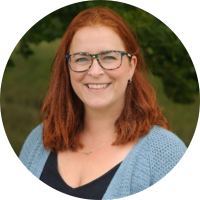 Lindsay Randall, Founder, CEO, Mother, Arthur’s Quest
Lindsay Randall, Founder, CEO, Mother, Arthur’s Quest
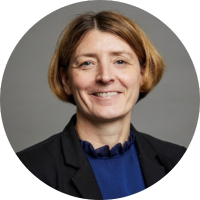 Hazel Dawson, Market Access Director, UK & Ireland, Alexion Pharma
Hazel Dawson, Market Access Director, UK & Ireland, Alexion Pharma
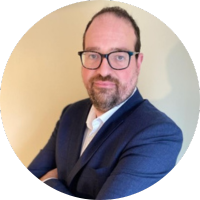 Robert Donnell, EVP, Medicines Access, Smartway Pharma
Robert Donnell, EVP, Medicines Access, Smartway Pharma
- Breaking down barriers for access
- Strengthening health systems around the world and accelerating pathways to diagnosis
- Stakeholders to address the rare diseases’ ecosystem gaps to collaboratively build a sustainable roadmap for better health and a brighter future for the patients suffering from rare diseases.
- Challenges and opportunities in creating sustainable healthcare for all.
Moderator:
 Dr. Femida Gwadry-Sridhar, Founder and CEO, Pulse infoframe Inc.
Dr. Femida Gwadry-Sridhar, Founder and CEO, Pulse infoframe Inc.
Panelists: Anthony Hall, Chief Medical Officer, Healx
Anthony Hall, Chief Medical Officer, Healx
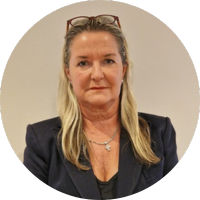 Juliet Hulse, Head of Clinical Operations, Pulse infoframe Inc.
Juliet Hulse, Head of Clinical Operations, Pulse infoframe Inc.
 Surabhi Verma, Chief Medical Officer, Leadiant Biosciences
Surabhi Verma, Chief Medical Officer, Leadiant Biosciences
 Carole Scrafton, Director & Co-Founder, Flutters and Strutters
Carole Scrafton, Director & Co-Founder, Flutters and Strutters
 Dr. Ron Jortner, Founder/CEO, Aspire Biosciences
Dr. Ron Jortner, Founder/CEO, Aspire Biosciences
 Sheela Upadhyaya – Life Sciences Consultant – specialising in Rare Disease
Sheela Upadhyaya – Life Sciences Consultant – specialising in Rare Disease
